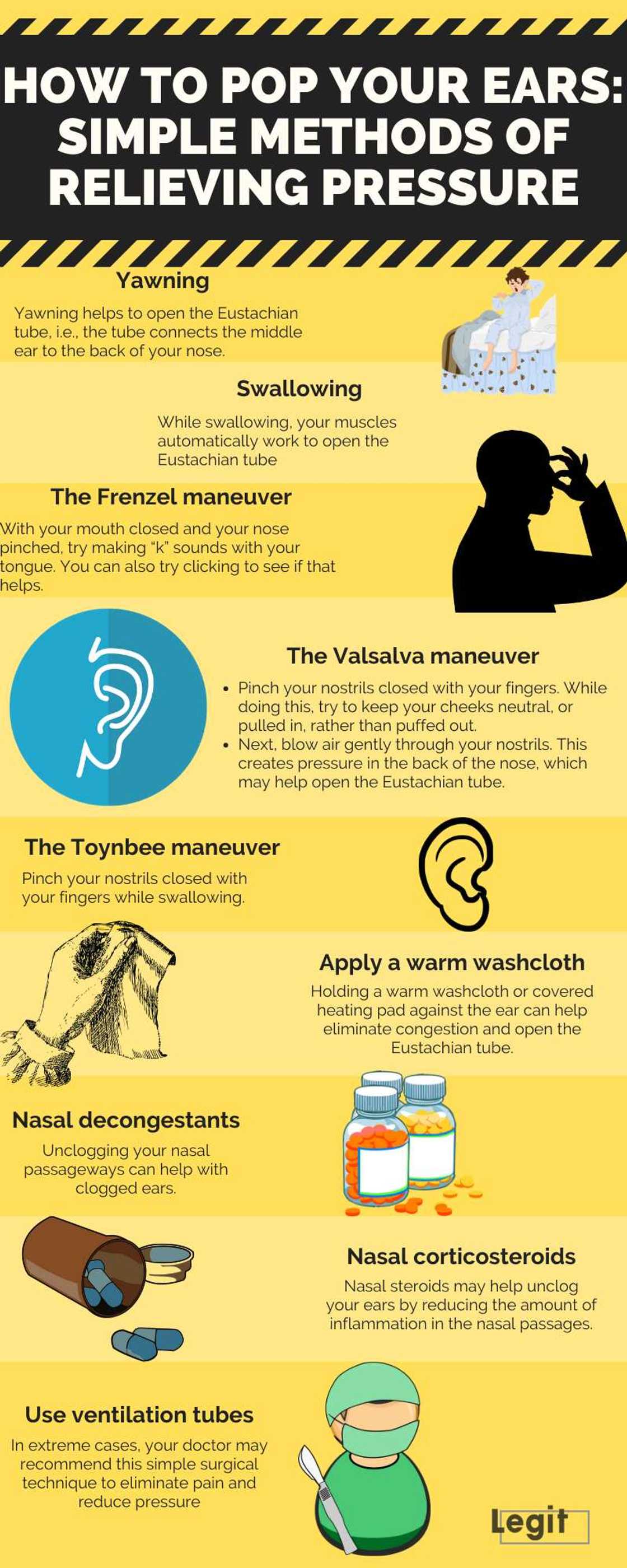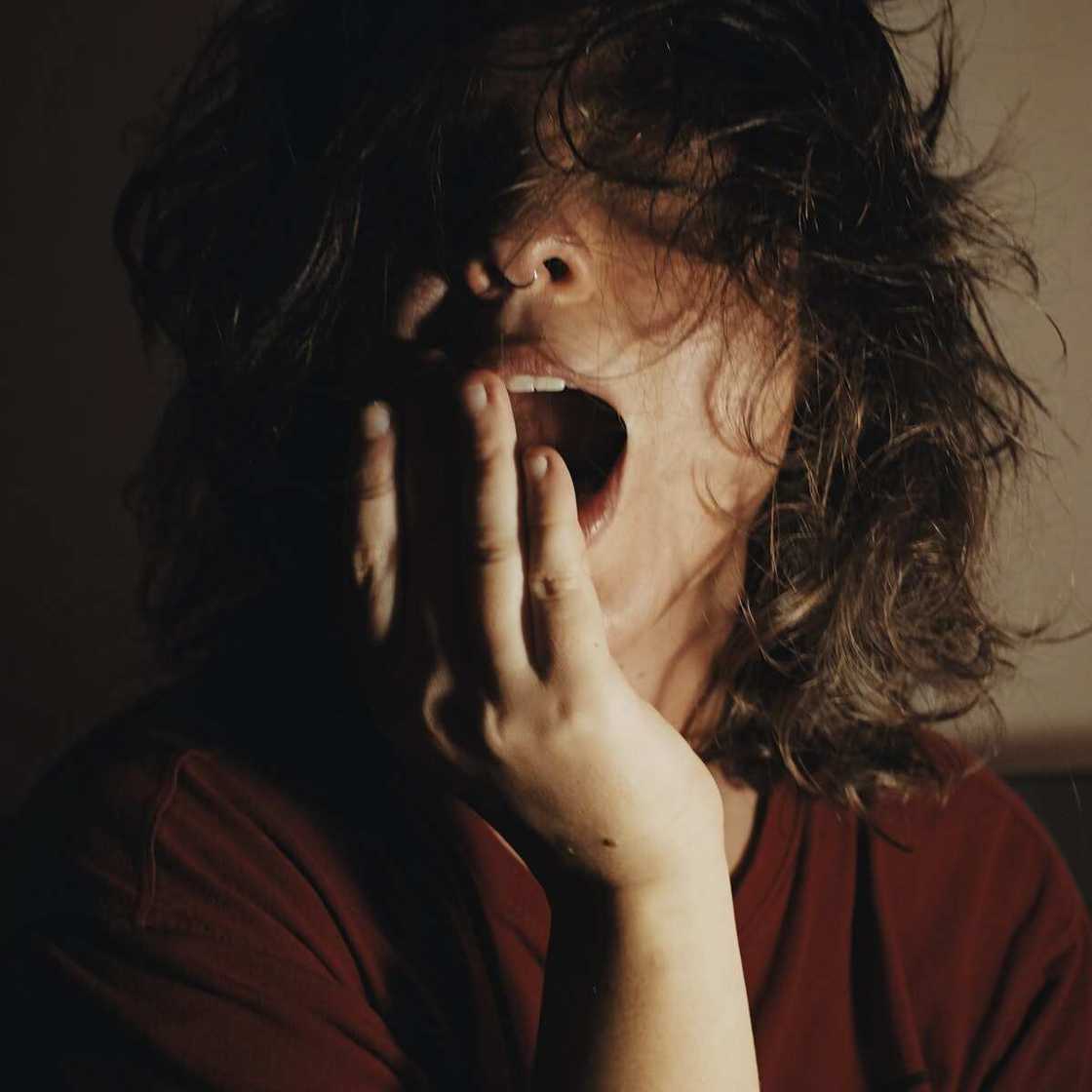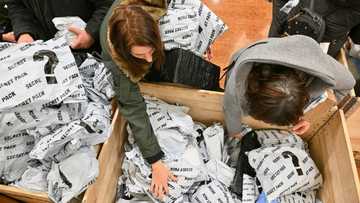How to pop your ears: Simple methods of relieving pressure
Anyone who has ever been on a flight has experienced the annoying sensation of the ears feeling full or clogged and needing to pop, also known as ear barotrauma. Popping your ears deals with this condition by helping to open the eustachian tubes and regulate the pressure in the middle ear, but how can one do this? Here is a simple tutorial on how to pop your ears.

Source: Original
There are many ways of ear popping. In this post, we have highlighted the most popular ears popping techniques.
In case none of these work, please visit a doctor. Also, if you find that your ears are always blocked, or that your ear won't pop despite trying everything, then this could be a sign of an underlying problem that you should get checked right away.
Without further ado, let's learn how to pop ears.
Learn how to pop your ears using these 10 methods

Read also
Noble Igwe evokes comments as he attacks women with untidy frontals, forced baby hairs: "It's tacky"
Here are some foolproof methods on how to make your ears pop:
1. Yawn

Source: UGC
Yawning helps to open the Eustachian tube. As it is very hard to yawn on cue, you could try doing a fake yawn, which will have the same effect.
Try yawning as much as you possibly can in order to relieve the pressure.
2. Swallow
Swallowing helps to activate the muscles that open the eustachian tube.
3. Frenzel maneuvre
With your mouth closed and your nose pinched, try making “k” sounds with your tongue. You can also try clicking.
4. Valsalva maneuvre
To do the Valsalva maneuvre, pinch your nostrils shut with your fingers. While doing this, try to keep your cheeks neutral, or pulled in, rather than puffed out.
Then, blow air gently through your nostrils. This creates pressure in the back of the nose, which may help open the Eustachian tube.
Be very cautious while performing the Valsava maneuvre because there is a small risk of rupturing the eardrum

Read also
IK Ogbonna sounds heavy note of warning on personal hygiene: "Use wipes to freshen up down there"
5. Toynbee maneuvre
This is one of the most common methods of popping ears. For the Toynbee maneuvre, pinch your nostrils shut with your fingers while swallowing. This should open the Eustachian tube.
Having a mouthful of water may make doing the Toynbee maneuvre a little easier.
6. Apply a warm washcloth
Holding a warm washcloth or covered heating pad against the ear can help eliminate congestion and open the eustachian tube.
The warm washcloth method is most effective if you have clogged ears due to a cold, the flu, or allergies.
7. Use nasal decongestants

Source: UGC
Nasal decongestants unclog your nasal passageways, which can help with clogged ears.
8. Use nasal corticosteroids
Nasal corticosteroids reduce the amount of inflammation in your nasal passages, which can help air move more freely through the eustachian tube, equalizing the pressure in your ears.
9. Use ventilation tubes - surgical procedure
Can a doctor pop your ears? Yes. In extreme cases, you may have to use a surgical technique to eliminate pain and reduce pressure.
During the procedure, the doctor will insert thin ventilation tubes in one or both of your ears to drain out excess fluid.
10. Try using some special devices
The devices you can use to relieve this condition are:
- Special earplugs - They may help regulate the flow of air from the surrounding into the ear.
- Otovent and similar devices: Otovent is an Autoinflation device which uses a specially pressurised balloon to open the eustachian tubes. It is also used to treat ear discomfort during flights. The device mimics the motions used in the Valsava maneuvre.
- EarPopper: This prescription device can also help to open your eustachian tubes.
Here are some other techniques on how to get your ears to pop:
- Chewing gum: Chewing gum stimulates the production of saliva, hence increasing swallowing. The chewing motion may also help to open your eustachian tubes.
- Sucking on hard candy: This also stimulates saliva production, hence increasing swallowing.
If you try all these methods on how to get ears to pop and nothing happens, then please visit a doctor so they can examine you and find out what the real problem is.
Why your ears won't pop
Your ears won't pop if you have an underlying disorder that's affecting your eustachian tube. The following factors may affect the ability of your ears to pop:
Excessive ear wax
Too much wax (cerumen) can impair the function of your auditory tube.
Wax can be removed with special ear drops that dissolve the wax, by irrigation, or with a special instrument called a cerumen spoon, which the doctor uses to "dig" the wax out.
Fluid in the ear
Thickened fluid may block your auditory tube, preventing fluid from draining into the back of your throat. This may be caused by an infection or the enlargement of surrounding structures.
Fluid in the ear is treated by the surgical insertion of synthetic ear tubes, which allows the ear to drain and equalize pressure.
Congestion
Too much mucus may also clog your auditory tubes and make it difficult to maintain the pressure in the middle ear space.
Patulous Eustachian Tube
Patulous Eustachian Tube is a disorder in which your eustachian tube (also known as auditory tube) remains open all the time.
What do you do if your ears won't pop?
Visit your doctor so that the root cause of your problem is identified and fixed.
How to avoid clogged ears
- Take a decongestant like Afrin or Sudafed when you fly, usually 30 min before taking off or landing.
- Do not sleep during the descent & landing while flying.
- If you have a baby on board, walk them during descent. Also, if your baby or infant has clogged ears, you can help them get rid of the problem by getting them to use a bottle, suck on a pacifier, or giving them a drink.
Now you know how to pop your ears. Use any of these techniques whenever you experience ear barotrauma.
DISCLAIMER: This article is intended for general informational purposes only and does not address individual circumstances. It is not a substitute for professional advice or help and should not be relied on to make decisions of any kind. Any action you take upon the information presented in this article is strictly at your own risk and responsibility!
Source: Legit.ng





